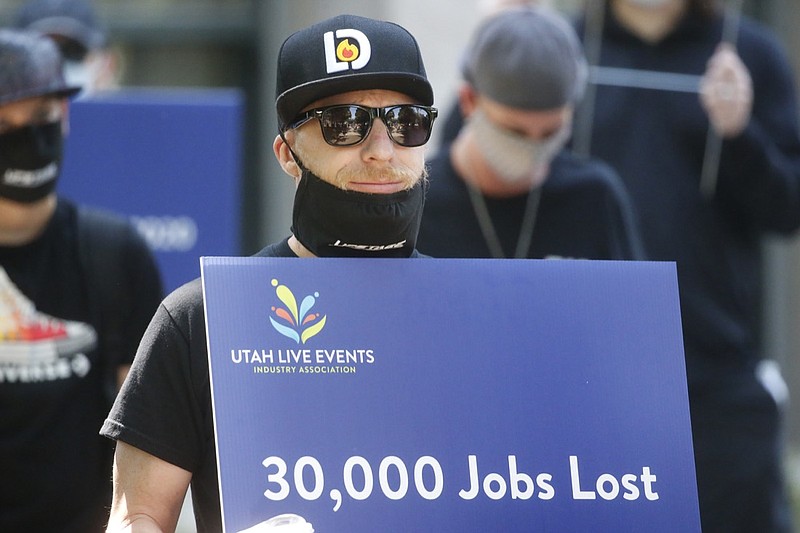The number of laid-off Americans seeking unemployment benefits rose last week for the first time since the pandemic struck in March, evidence of the deepening economic pain the outbreak is causing to the economy.
The rise in weekly jobless claims to 1.4 million underscores the outsize role the unemployment insurance system is playing among the nation's safety net programs -- just when a $600 weekly federal aid payment for the jobless is set to expire at the end of this week.
Initial jobless claims also rose again in Tennessee last week from the previous week with 25,749 laid off workers making their first unemployment claim - or nearly 12 times as many as the 2,233 who filed such claims in the same week a year ago. Since the pandemic began shutting down businesses in March, a total of 740,123 Tennessee workers - or one out of five workers on the job in February - have filed claims for jobless benefits although only 285,10 continued to receive benefits last week, according to the Tennessee Department of Labor.
Nationwide, the Labor Department said Thursday that roughly 32 million people are receiving unemployment benefits, though that figure could include double-counting by some states. Some economists say the figure is likely closer to 25 million.
Last week's pace of unemployment applications -- the 18th straight week it's topped 1 million -- was up from 1.3 million the previous week. Before the pandemic, the number of weekly applications had never exceeded 700,000.
An additional 975,000 applied for jobless aid under a separate program that has made self-employed and gig workers eligible for the first time. That figure isn't adjusted for seasonal trends, so it's reported separately.
The resurgence of confirmed viral cases across the country has forced some businesses to close a second time or to impose tighter restrictions on customers in response to state mandates. The resulting pullback in business activity has hindered job growth and likely forced additional layoffs.
The federal government's $600 weekly benefit for laid-off workers -- which is in addition to whatever jobless aid a state provides -- is the last major source of economic help from the $2 trillion relief package that Congress approved in March. A small business lending program and one-time $1,200 payment have largely run their course.
Members of Congress are negotiating another aid package that might extend the $600 benefit, though likely at a lower level. Because of the $600 weekly federal benefit, roughly two-thirds of the unemployed are receiving more in aid than they earned at their former jobs, research has shown -- a finding that's led Republicans to argue that it is discouraging people from returning to work.
Yet the additional money has also been a key source of support for people who lost jobs that no longer exist or who fear being infected by the virus if they return to work.
The federal jobless aid has also helped buttress the overall economy. Unemployment aid accounted for 6% of all U.S. income in May, a greater share than even Social Security. Economists say it's one reason why retail spending rebounded as quickly as it did in May and June, helping fuel a modest economic rebound.
